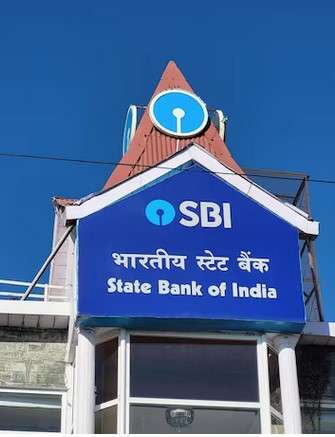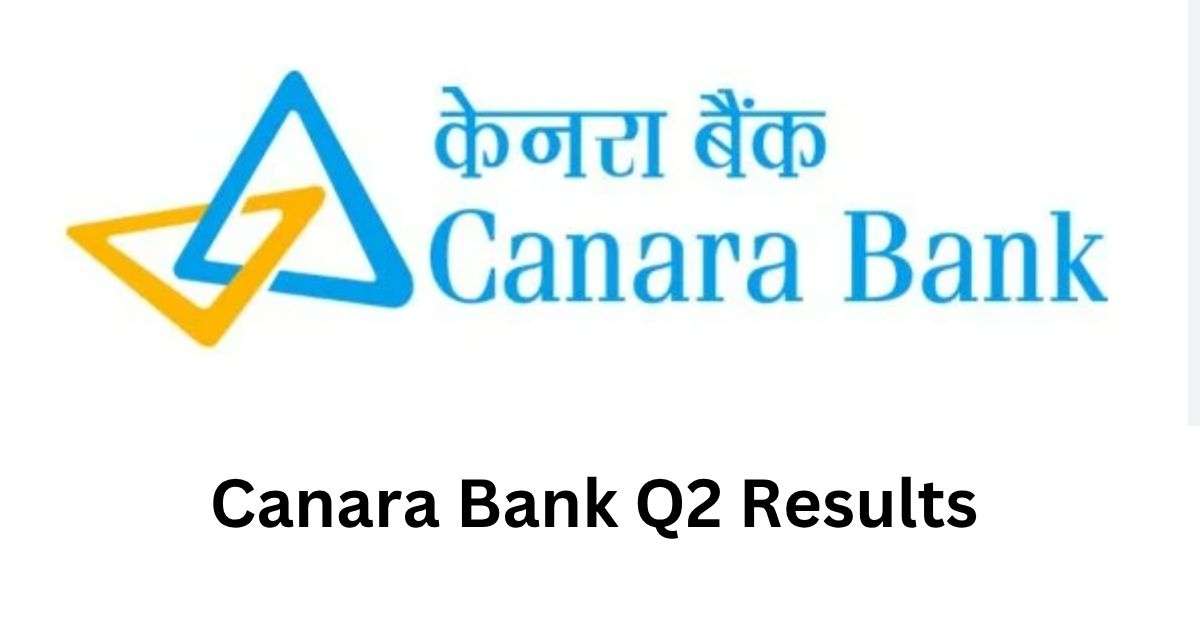Introduction
The recent News by the Karnataka government regarding the withdrawal of deposits from the State Bank of India (SBI) and Punjab National Bank (PNB) have created a significant buzz in financial and administrative circles. On August 16, 2024, the state government temporarily paused a circular that prohibited all business transactions with SBI and PNB. This move followed after the banks requested more time to address the concerns raised by the state government. The decision is a critical step in a broader narrative involving accountability, transparency, and the protection of public funds. But what led to this drastic measure? Let’s dive into the details.

Outline
- Background of the Circular
- The initial directive by the Karnataka government
- Impact on government departments and public sector units
- Reasons behind the circular
- Why SBI and PNB Deposits Were Put on Hold
- Observations by the Public Accounts Committee
- Audit findings from the Comptroller and Auditor General’s report
- Alleged fraud and its implications
- The Government’s Response
- Issuance of the circular on August 12, 2024
- Immediate consequences for SBI and PNB
- Statements from government officials
- Banks’ Reaction and Request for Abeyance
- Written representations by SBI and PNB
- Meetings between bank officials and the Finance Department
- The decision to pause the circular for 15 days
- Understanding the Stakes
- Financial implications for government entities
- Transparency and accountability in government dealings
- The broader impact on the banking sector
- Historical Context
- Previous interactions between the Karnataka government and these banks
- Unresolved issues dating back to 2012-13
- The role of the Karnataka State Pollution Control Board (KSPCB) and Karnataka Industrial Area Development Board (KIADB)
- Details of the Blocked Funds
- ₹12 crore belonging to KIADB
- ₹10 crore belonging to KSPCB
- The impact of these blocked funds
- SBI’s Financial Performance
- Overview of SBI’s Q1 results
- Comparison with previous fiscal years
- Market reaction to the Q1 report
- PNB’s Financial Performance
- Overview of PNB’s Q1 results
- Factors contributing to the highest-ever quarterly profit
- Market reaction to PNB’s Q1 report
- The Broader Implications for the Indian Banking Sector
- The significance of government trust in public sector banks
- Potential long-term effects on SBI and PNB
- The ripple effect on other banking institutions
- Public and Expert Reactions
- Response from financial experts
- Public opinion on the government’s decision
- Media coverage and analysis
- Future Prospects
- What could happen after the 15-day abeyance?
- Possible resolutions and their implications
- The potential for further government action
- Conclusion
- Summarizing the key points
- The importance of resolving the issues
- Final thoughts on the Karnataka government’s actions
- FAQs
- Why did the Karnataka government issue the circular?
- How will the abeyance affect government departments?
- What are the financial implications for SBI and PNB?
- How have the public and experts reacted to the decision?
- What can be expected after the 15-day period?
The news on Karnataka govt and SBI, PNB: Background of the Circular
The news on Karnataka govt and SBI, PNB, as it is issued a circular on August 12, 2024, that sent shockwaves across its departments, boards, corporations, public sector units (PSUs), and universities. The directive was clear: withdraw all deposits and investments from SBI and PNB, and cease any business transactions with these two banking giants. The move was unprecedented and raised questions about the reasons behind such a stern action.
Impact on Government Departments and Public Sector Units
This circular had an immediate impact on various government entities that held significant deposits in these banks. Departments and PSUs were left scrambling to understand the implications of withdrawing their funds, especially in a short time frame. The decision had the potential to disrupt ongoing projects and financial planning.
Reasons Behind the Circular
The circular was not issued without reason. According to the Karnataka government, the decision was based on observations made by the Public Accounts Committee on July 2 and August 6, 2024, coupled with findings from the Comptroller and Auditor General’s (CAG) report. The government cited unresolved issues, particularly related to alleged fraud in certain bank branches, which had resulted in the non-repayment of fixed deposits made by key government boards like the Karnataka Industrial Area Development Board (KIADB) and the Karnataka State Pollution Control Board (KSPCB).
Why SBI and PNB Deposits Were Put on Hold
Observations by the Public Accounts Committee
The Public Accounts Committee, a body responsible for examining the audit reports of the CAG, made crucial observations that prompted the government’s action. These observations highlighted discrepancies and potential mismanagement in the handling of government funds deposited with SBI and PNB.
Audit Findings from the Comptroller and Auditor General’s Report
The CAG’s audit report added fuel to the fire. It pointed out significant lapses in the management of deposits by these banks, leading to financial losses for government entities. The audit findings were alarming enough for the Karnataka government to consider drastic measures to safeguard public funds.
Alleged Fraud and Its Implications
The crux of the issue was the alleged fraud in some branches of SBI and PNB. These frauds, which had been unresolved for years, involved substantial sums of money. The government was particularly concerned about the ₹12 crore belonging to KIADB and ₹10 crore of KSPCB that had been blocked by these banks for many years due to the scams.
The Government’s Response
Issuance of the Circular on August 12, 2024
In response to the above concerns, the Karnataka government issued the circular on August 12, 2024. This directive aimed to protect public funds by withdrawing them from SBI and PNB and preventing any further deposits in these institutions. The decision was a bold move to ensure that the government’s concerns were addressed.
Immediate Consequences for SBI and PNB
The circular had immediate consequences for SBI and PNB. These banks, which hold significant government deposits, faced the risk of losing substantial business. The directive also raised concerns about the banks’ reputation and their ability to manage government funds effectively.
Statements from Government Officials
Government officials were quick to justify the decision. They emphasized that the action was necessary to protect public funds and ensure transparency and accountability in financial dealings. The government made it clear that the circular was a response to unresolved issues that had persisted for years.
Banks’ Reaction and Request for Abeyance
Written Representations by SBI and PNB
In the wake of the circular, both SBI and PNB acted swiftly. On August 16, 2024, they submitted written representations to the Karnataka government, requesting a 15-day period to address the issues raised. The banks were keen to resolve the matter and prevent any further damage to their reputation.
Meetings Between Bank Officials and the Finance Department
The banks didn’t stop at written requests. Senior officials from SBI and PNB met with higher officials of the Finance Department on the same day to reiterate their request for a temporary pause on the circular. These meetings were crucial in convincing the government to reconsider its decision, at least temporarily.
The Decision to Pause the Circular for 15 Days
After considering the banks’ requests, Chief Minister Siddaramaiah directed the Finance Department to keep the circular in abeyance for 15 days. This decision was communicated through a new circular, which stated that the pause would allow the banks sufficient time to address the government’s concerns and find a resolution.
Understanding the Stakes
Financial Implications for Government Entities
The stakes were high for both the government and the banks. For government entities, the withdrawal of deposits could disrupt financial planning and affect ongoing projects. On the other hand, for the banks, the potential loss of government business could have long-term repercussions on their financial stability and reputation.
Transparency and Accountability in Government Dealings
The government’s decision was also about more than just financial concerns. It was a statement about the importance of transparency and accountability in public dealings. By taking a firm stand against unresolved issues and potential fraud, the Karnataka government aimed to send a clear message that it would not tolerate mismanagement of public funds.
The Broader Impact on the Banking Sector
The implications of this decision extended beyond SBI and PNB. Other banks, particularly those handling government deposits, were likely to take note of the situation and reassess their practices to avoid similar scrutiny. The circular and its subsequent pause could set a precedent for how government-business relations are managed in the banking sector.
Historical Context
Previous Interactions Between the Karnataka Government and These Banks
The relationship between the Karnataka government and these banks had a history marked by both cooperation and contention. While the banks had been trusted partners in managing public funds, unresolved issues dating back to 2012-13 had strained this relationship.
Unresolved Issues Dating Back to 2012-13
The unresolved issues, particularly those involving the KSPCB and KIADB, had persisted for over a decade. Despite prolonged correspondence and meetings, the government’s concerns about the non-repayment of fixed deposits remained unaddressed. This history of unresolved issues played a significant role in the government’s decision to issue the circular.
The Role of the Karnataka State Pollution Control Board (KSPCB) and Karnataka Industrial Area Development Board (KIADB)
The KSPCB and KIADB were at the center of the controversy. These boards had deposited significant funds in SBI and PNB, only to find that these funds were blocked due to alleged scams in the banks. The failure to resolve these issues over the years had eroded the trust between the government and the banks.
Details of the Blocked Funds
₹12 Crore Belonging to KIADB
The Karnataka Industrial Area Development Board (KIADB) had ₹12 crore blocked in PNB, a sum that had been tied up for years due to unresolved issues related to fraud. This situation was a significant concern for the Karnataka government, as the blocked funds represented a loss of financial resources for the state’s industrial development.
₹10 Crore Belonging to KSPCB
Similarly, the Karnataka State Pollution Control Board (KSPCB) had ₹10 crore blocked in SBI. These funds were meant for environmental initiatives, and their inaccessibility hindered the board’s ability to carry out its functions effectively. The government’s frustration with the banks’ handling of these funds was a driving factor behind the issuance of the circular.
The Impact of These Blocked Funds
The blocked funds had a tangible impact on the functioning of both KIADB and KSPCB. These boards were unable to access the money needed for their projects, leading to delays and financial strain. The government viewed the resolution of these issues as critical to restoring the trust and functionality of these entities.
SBI’s Financial Performance
Overview of SBI’s Q1 Results
Despite the challenges posed by the Karnataka government’s circular, SBI’s financial performance remained strong. In the first quarter of the current fiscal year, SBI reported a standalone net profit of ₹17,035 crore. This was a slight increase from the ₹16,884.2 crore reported in the corresponding period last year.
Comparison with Previous Fiscal Years
SBI’s total income for the first quarter rose to ₹1,22,688 crore, up from ₹1,08,039 crore a year ago. This growth, though modest, indicated the bank’s resilience in the face of external pressures. However, the circular and its implications could pose challenges for future financial results.
Market Reaction to the Q1 Report
On the day of the Q1 report’s release, shares of SBI saw a slight uptick, closing 1.18% higher at ₹812.45 apiece on the BSE. The market’s response was cautiously optimistic, but the looming uncertainty surrounding the government’s circular could affect investor sentiment in the coming weeks.
PNB’s Financial Performance
Overview of PNB’s Q1 Results
PNB’s Q1 results painted a different picture. The bank reported a remarkable 159% increase in standalone net profit, reaching ₹3,251.5 crore—the highest-ever quarterly profit for the bank. This was a significant jump from the ₹1,255.4 crore reported in the corresponding period last year.
Factors Contributing to the Highest-Ever Quarterly Profit
Several factors contributed to PNB’s impressive performance. A decline in bad loans and an improvement in interest income were major drivers of the bank’s profitability. The substantial increase in net profit underscored the bank’s ability to navigate challenges and improve its financial health.
Market Reaction to PNB’s Q1 Report
Despite the positive financial results, PNB’s shares closed 0.44% lower at ₹113.05 apiece on the BSE. This dip could be attributed to broader market conditions and concerns about the potential impact of the Karnataka government’s circular on the bank’s future performance.
The Broader Implications for the Indian Banking Sector
The Significance of Government Trust in Public Sector Banks
The relationship between the government and public sector banks like SBI and PNB is foundational to the stability of the Indian banking sector. Government deposits represent a significant portion of these banks’ funds, and any loss of trust can have far-reaching consequences.
Potential Long-Term Effects on SBI and PNB
If the issues raised by the Karnataka government are not resolved satisfactorily, SBI and PNB could face long-term challenges in retaining government business. The potential loss of deposits and the reputational damage could affect their market position and financial stability.
The Ripple Effect on Other Banking Institutions
The Karnataka government’s actions could also prompt other states and public sector entities to reevaluate their relationships with banks. This ripple effect could lead to increased scrutiny and pressure on banks to improve their transparency and accountability.
Public and Expert Reactions
Response from Financial Experts
Financial experts have weighed in on the situation, with opinions varying on the government’s decision. Some have praised the Karnataka government for taking a firm stand on accountability, while others have expressed concern about the potential disruption to banking operations and the broader economic impact.
Public Opinion on the Government’s Decision
Public opinion has been similarly divided. While some citizens support the government’s efforts to safeguard public funds, others worry about the implications for government services and the potential strain on banking relationships.
Media Coverage and Analysis
The media has closely followed the developments, with extensive coverage and analysis of the government’s decision. The issue has sparked debates on the balance between government oversight and the operational independence of banks.
Future Prospects
What Could Happen After the 15-Day Abeyance?
The next 15 days will be crucial for both the Karnataka government and the banks. If the banks can address the government’s concerns satisfactorily, the circular may be revoked. However, if issues remain unresolved, the government could reinstate the directive, leading to further complications.
Possible Resolutions and Their Implications
Possible resolutions include the repayment of the blocked funds, improved transparency in banking practices, and strengthened communication between the government and the banks. These outcomes would be positive for all parties involved and could restore trust.
The Potential for Further Government Action
If the banks fail to meet the government’s expectations, there could be further government action, including legal measures or the imposition of stricter regulations on banking practices. This could have significant implications for the banking sector as a whole.
Conclusion
The Karnataka government’s decision to pause its circular prohibiting deposits in SBI and PNB has brought to light critical issues of transparency, accountability, and the management of public funds. While the 15-day abeyance offers a window for resolution, the situation remains delicate. Both the government and the banks have much at stake, and the coming weeks will be crucial in determining the outcome. As the situation unfolds, it will serve as a case study in the complex dynamics between government and financial institutions.
FAQs
Why did the Karnataka government issue the circular?
The circular was issued due to concerns about unresolved issues related to alleged fraud in SBI and PNB branches, which resulted in the blocking of significant government funds.
How will the abeyance affect government departments?
The 15-day abeyance provides a temporary reprieve for government departments, allowing them to continue their transactions with SBI and PNB while the banks work to resolve the issues.
What are the financial implications for SBI and PNB?
If the issues remain unresolved, SBI and PNB could face a significant loss of government business, which could impact their financial stability and reputation.
How have the public and experts reacted to the decision?
Reactions have been mixed, with some praising the government’s emphasis on accountability, while others express concerns about the potential disruption to banking operations.
What can be expected after the 15-day period?
The outcome will depend on the banks’ ability to address the government’s concerns. If resolved, the circular may be revoked; if not, further government action may be taken.
Open Your Demat Account with Discount Brokers:
ZERODHA 1) : https://zerodha.com/open-account?c=EJ4366
Angelone 2) : https://tinyurl.com/2gloc3g6 or
Upstox3): https://link.upstox.com/9w4tNo1rK8au7VK47









Real Estate This is really interesting, You’re a very skilled blogger. I’ve joined your feed and look forward to seeking more of your magnificent post. Also, I’ve shared your site in my social networks!
Simplywall I just like the helpful information you provide in your articles